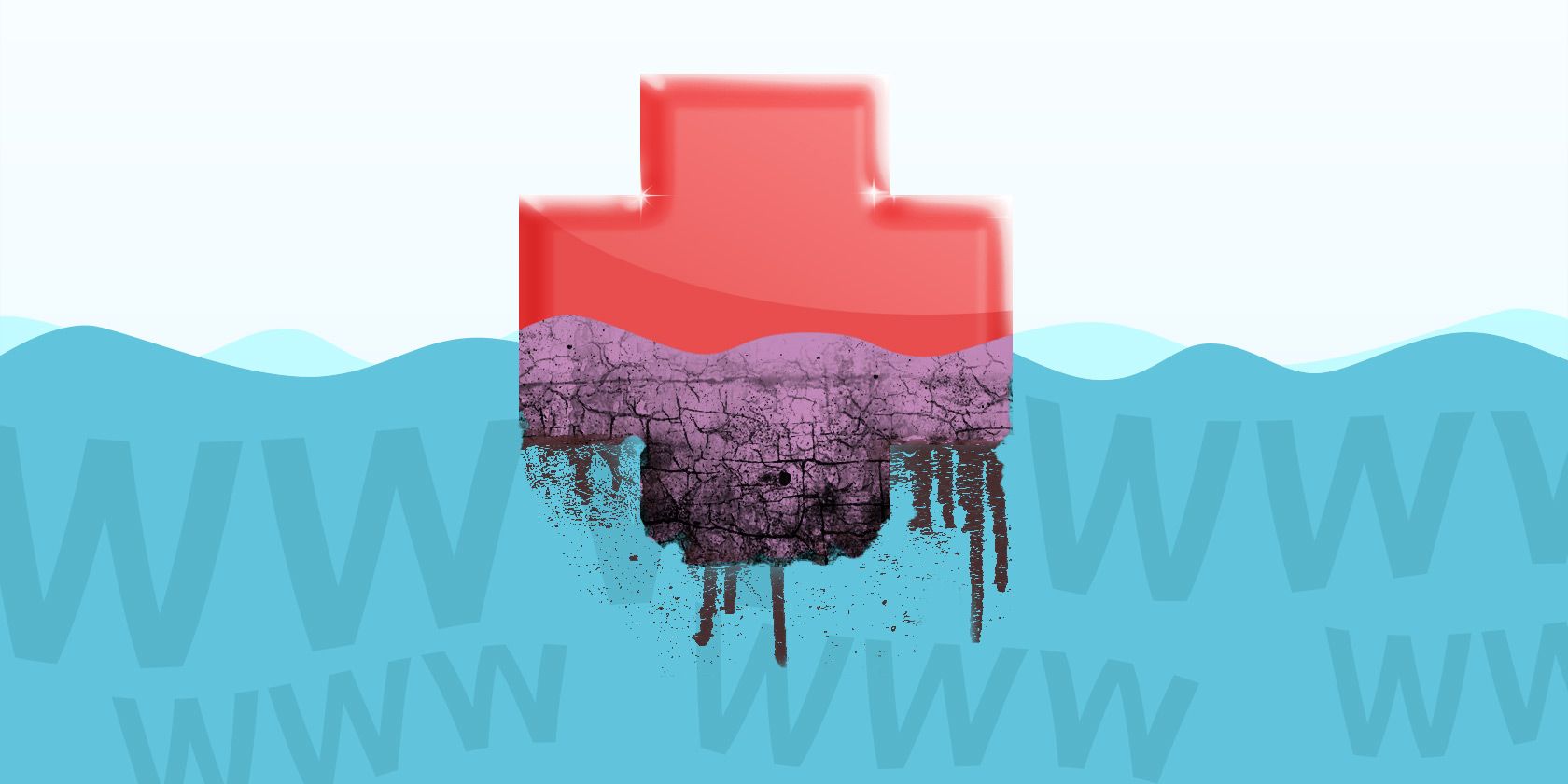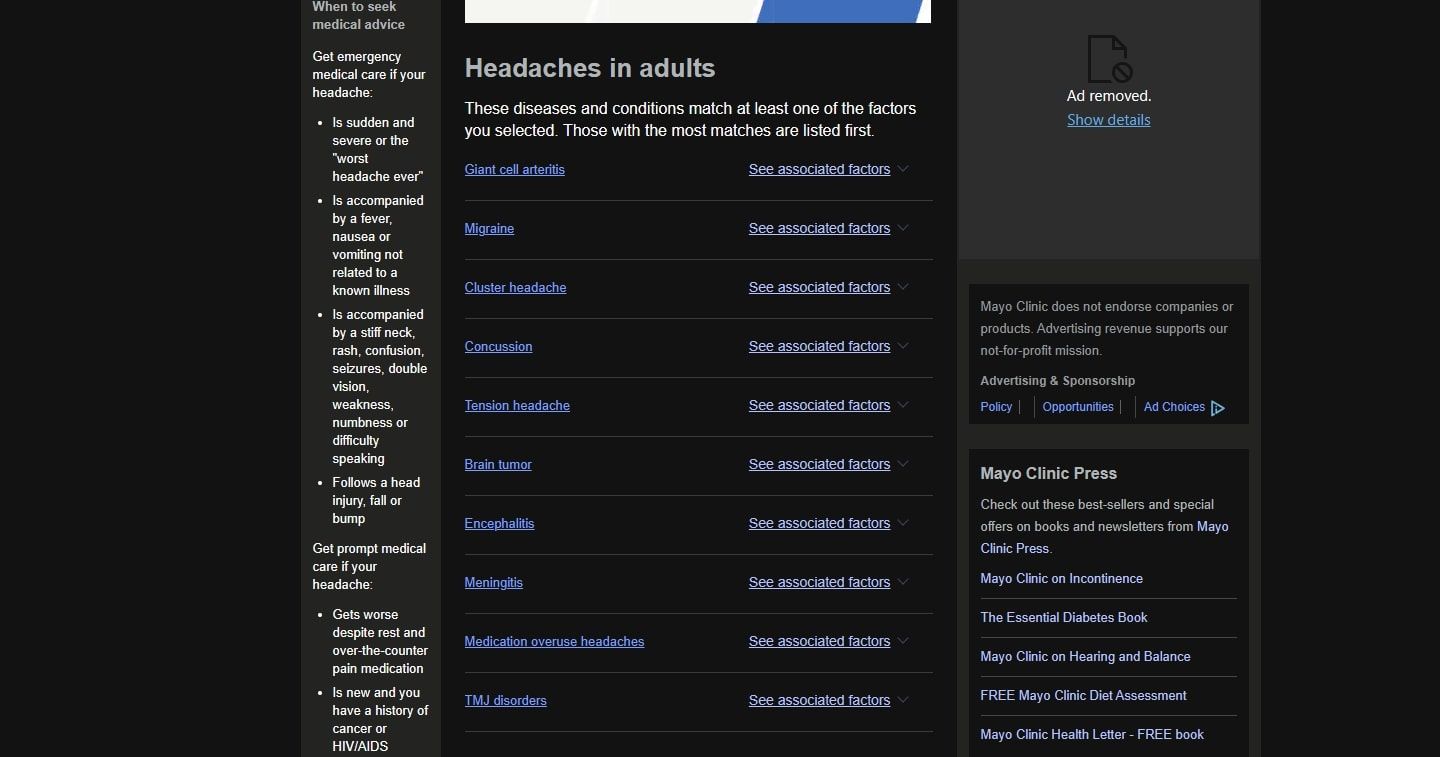Looking for medical information online is a gamble at best. You key in a symptom, a disease, a medical term or two, and you're quickly presented with a bunch of matching results at random. You take one look at them, add two and two, and come up with five.
Searching for and relying on online medical information to diagnose or treat yourself, someone you know, or even a pet, can prove costlier than you think. There are lots of red flags and pitfalls to look out for to avoid interfering with your own health and wellness.
1. Most Influencers Aren't Medically Certified
With TikTok, Instagram, and YouTube being so popular nowadays, pretty much every topic out there is covered by a group of influencers.
Just scroll through TikTok for an hour or so today, and you'll likely come across a number of posts related to health. A lot of influencers like to share their diets, foods to avoid, workout routines, and other health habits online, but this can be damaging to viewers.
Because many social media users look up to influencers, be it for their success, style, or physique, they may not think twice before taking advice. For example, if a fitness influencer claims that cutting out all fruit and veg helped them overcome IBS, a few of their followers may give this a try if they deal with similar issues.
In today's social media landscape, there are health and fitness myths everywhere. Take The Liver King, for example. This incredibly popular influencer made his name by claiming to eat almost exclusively meat.
Because of his outstanding physique, many people followed Liver King's advice, be it on how to eat, how to exercise, or how to live your life in general. The influencer claimed to gain his considerable muscle mass without any steroids, which made his lifestyle even more alluring. Liver King also has a line of supplements that anyone can buy online to further align themselves with his health and fitness habits.
However, in 2023, WatchMojo claimed that Liver King was taking thousands of dollars worth of steroids every month. Which, if true, completely disproves his claims of being steroid-free.
This was after many of his followers had started taking his health advice under the impression that his muscle gain was all natural.
It's this kind of issue that makes online influencers very difficult to trust. No matter how incredibly a creator's health may look, it's crucial to remember that they are usually only showing the best, most attractive elements of their lives.
If you want to listen to an influencer's health and fitness advice, make sure they have medical certification, ideally a doctorate or similar. You should also do your own research into things you hear on social media. The creator may claim something is backed by research, but this may only consist of one or two small studies, poorly conducted studies, or studies with inconclusive or dubious results.
Even if an influencer's advice is sound, there's no way of knowing this without considerable medical backing. Keep this in mind.
2. Not Every Webpage Is Medically Approved
Let's say you've found a website regarding a new diet that promises improved skin and hair. You read some positive testimonials and watch a snazzy promotional video, and you're hooked. Could this be the perfect diet for you?
Not so fast. It's crucial to remember here that pretty much anyone with a computer and internet connection can make a website. With sites like WordPress offering sleek and stylish website templates, sometimes free of charge, it's very easy for the average person to create their own website that looks polished and professional. As consumers, we tend to gravitate towards more aesthetically pleasing products, including websites. Business owners and cybercriminals alike are aware of this.
A lot of shady health and wellness sites require some kind of payment so that users can unlock the secrets to perfect health. If the user is keen enough and the site is designed well, they can easily be pulled in by persuasive language.
If any website asks you to buy access to a health course, workout regimen, or diet plan, think twice before paying. The internet is full of free health and self-care resources from accredited bodies.
Whether the site asks for payment or is giving free advice, be wary. Have you checked to see if this company has any medical backing? Was this site domain only created in the past few months? These are things you need to consider before taking any action.
3. One Symptom Could Have 100 Causes
So, you've got a headache, and you want to look online to see what's wrong. You click on a random search result and find that you may have one of numerous medical conditions, some of which are life-threatening.
The webpage below is one we landed on after searching for the cause of a headache. Which shows how easy it is to find worrying results online. You may have a migraine, but the results include more serious conditions, like a brain tumor.
If you're a little health anxious or are a general worrier, you may assume the worst. Yes, your symptoms could be due to a migraine, but they may also be the first signs of a serious disease. A lot of the time, it's the former or something equally minor.
If you're worried about your health, it is always best to consult a doctor, not the internet. Speaking face-to-face to someone highly experienced in medicine will likely allow you to more easily find out what's really wrong, which will save you a lot of time and possibly a lot of worry.
4. Online Mental Health Advice Is Very Subjective
As is the case for physical health, there are endless resources about mental health online. Some of these are well-researched and medically backed, whereas others are nothing more than personal opinions. Maybe you've come across a YouTube video about tackling anxiety, but the solution involves eating heaps of fruit, deleting all your social media accounts, and buying an essential oil diffuser.
Who knows—this may help some people, but if the advice isn't backed by professionals, tread very carefully. Doing anything drastic to improve your mental health may result in you feeling even worse, which is always bad news.
It's best to either consult a doctor or therapist or get in touch with an accredited mental health body if you want to talk about improving how you feel. We have a guide to the best websites for talking about your mental health if you'd like to find useful resources online.
How to Use Online Health Advice to Your Advantage
There are countless pieces of medical misinformation online. Consider the hordes of supposed "miracle cures" that went viral on social media during the COVID-19 pandemic. The internet is now a highly useful but highly dangerous place, so it's important to know how to benefit from it while also staying safe.
1. Verify Website URLs
If you're reading medical advice on a website you haven't heard of before, it's always best to run the URL through a link checker. Simply paste the link into the provided text box, and the link checker should be able to verify whether it is safe.
2. Run a Background Check on Creators
So, you've come across an online creator whose health advice you're interested in. They've claimed to be a medical professional or have some level of training, so you feel you can trust them.
Before taking any tips from this influencer, try researching them a little. Is there any proof of their medical certification(s) online? Have they been involved in anything shady before? They are unlikely to advertise any shortcomings or red flags, so it's important to search for them yourself.
3. Keep Health Research Light
If you do want to use online medical advice, try to make sure it isn't anything that has the potential to do you harm. Supplementing preexisting knowledge and looking for small tips and tricks is usually harmless, but making big changes can lead to issues down the line.
For instance, cutting out a major food group may leave you worse off, but taking some tips from a skincare video is far less severe. Taking on small health habits is vastly different from changing your whole lifestyle, so try not to make any drastic decisions without consulting a medical professional first.
Online Health Advice Is a Risky Game
While there may be plenty of helpful health resources online, there are also plenty of unsubstantiated claims and bogus information. Make sure you're protecting your health by verifying any advice you wish to take on, and consider talking to your doctor before undergoing any big transitions.




